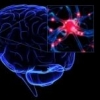I'm starting this thread in hope of generating enough interest to potentially start a group, which may be partially funded by a reliable member of this board, who I have been in regular correspondence with through email.
For those of you that don't know KOR antagonism has shown substantial promise in a range of psycho-pathologies, including:
Depression
Blockade of kappa opioid receptors attenuates the development of depressive-like behaviors induced by cocaine withdrawal in rats
http://www.sciencedi...028390811002589
"These data suggest that blockade of KORs before exposure to a stressor (in this case, cocaine withdrawal or forced swimming) can attenuate the development of stress-induced behavioral adaptations."
Antidepressant-like effects of kappa-opioid receptor antagonists in Wistar Kyoto rats.
http://www.ncbi.nlm....pubmed/19924112
"These results support the use of the WKY rat as a model of affective disorders potentially involving KOR overactivity and provide more evidence that KOR antagonists could potentially be used as novel antidepressants."
ANXIETY
Antidepressant and anxiolytic-like effects of kappa-opioid receptor antagonists in Wistar Kyoto rats
http://www.researchg...star_Kyoto_rats
"the KOR antagonist DIPPA produced clear anxiolytic-like effects in WKY rats, and partial anxiolytic-like effects in SD rat."
STRESS
Role of kappa-opioid receptors in stress and anxiety-related behavior.
http://www.ncbi.nlm....pubmed/23836029
"Collectively, available data suggest that KOR disruption produces anti-stress effects and under some conditions can prevent the development of stress-induced adaptations. As such, KOR antagonists may have unique potential as therapeutic agents for the treatment and even prevention of stress-related psychiatric illness, a therapeutic niche that is currently unfilled."
etc..
Along with a great body of literature supporting KOR blockade for addiction, and anhedonia. The potential for it treating anhedonia really interests me as it such a tough symptom to treat, anyone who has struggled through it knows.
There is a lot more available evidence, which I will leave up to anyone that wants to do some background research. Feel free to add in articles.
So where are the we with currently tested KOR antagonists?
JDtic is a selective, long acting Kappa antagonists that halted in trials due to the appearance of ventricular tachychardia in some subjects. It was subject of a group buy on these forums, most users IIRC didn't notice much, had troubles with dosing, and were scared away by the potential development of VT.
Abstract
Kappa opioid receptors and their endogenous neuropeptide ligand, dynorphin A, are densely localized in limbic and cortical areas comprising the brain reward system, and appear to play a key role in modulating stress and mood. Growing literature indicates that kappa receptor antagonists may be beneficial in the treatment of mood and addictive disorders. However, existing literature on kappa receptor antagonists has used extensively JDTic and nor-BNI which exhibit long-lasting pharmacokinetic properties that complicate experimental design and interpretation of results. Herein, we report for the first time the in vitro and in vivopharmacological profile of a novel, potent kappa opioid receptor antagonist with excellent selectivity over other receptors and markedly improved drug-like properties over existing research tools. LY2456302 exhibits canonical pharmacokinetic properties that are favorable for clinical development, with rapid absorption (tmax: 1–2 h) and good oral bioavailability (F = 25%). Oral LY2456302 administration selectively and potently occupied central kappa opioid receptors in vivo (ED50 = 0.33 mg/kg), without evidence of mu or delta receptor occupancy at doses up to 30 mg/kg. LY2456302 potently blocked kappa-agonist-mediated analgesia and disruption of prepulse inhibition, without affecting mu-agonist-mediated effects at doses >30-fold higher. Importantly, LY2456302 did not block kappa-agonist-induced analgesia one week after administration, indicating lack of long-lasting pharmacodynamic effects. In contrast to the nonselective opioid antagonist naltrexone, LY2456302 produced antidepressant-like effects in the mouse forced swim test and enhanced the effects of imipramine and citalopram. LY2456302 reduced ethanol self-administration in alcohol-preferring (P) rats and, unlike naltrexone, did not exhibit significant tolerance upon 4 days of repeated dosing. LY2456302 is a centrally-penetrant, potent, kappa-selective antagonist with pharmacokinetic properties favorable for clinical development and activity in animal models predictive of efficacy in mood and addictive disorders.
Anyone that would like to participate in a group buy for LY2456302 please state your interest in this thread.























































